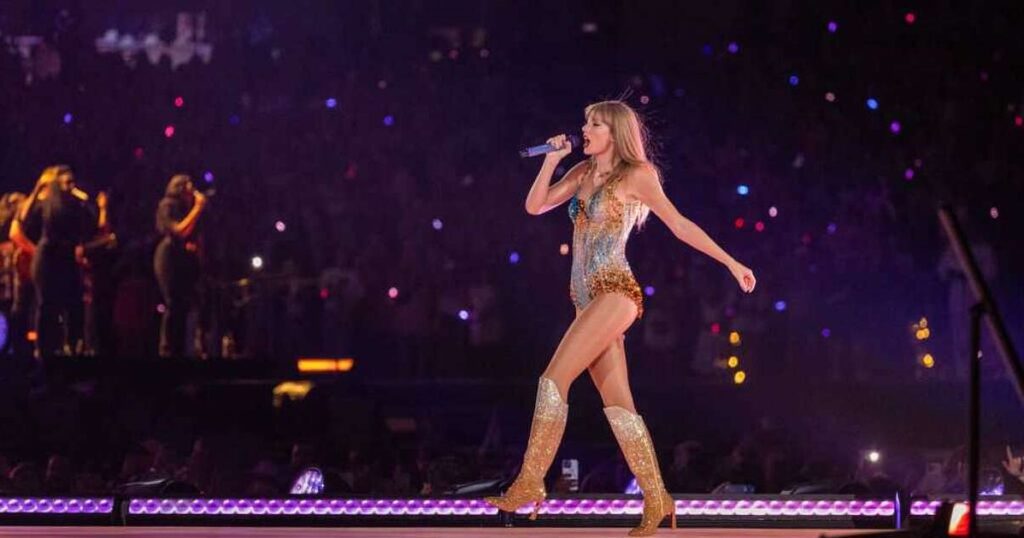
Will Taylor Swift’s net worth be enough to save her from a viral boycott?
Are we ready to talk about how music and activism are intersecting in today’s world? Let’s dive into a recent event that’s stirring up the scene. Taylor Swift and Selena Gomez, pop icons and long-time pals, made a splash in Brooklyn, New York, not just for their star power but for the cause they supported. With a net worth of over $1 billion, it is a heavy sign that the cause has strong power behind it.
The occasion? A comedy show titled “More Feelings” by Ramy Youssef at the renowned Brooklyn Academy of Music. But it wasn’t just any show – this one had a mission: to raise funds for Gaza.

A Night of Stars and Solidarity
The buzz around this event wasn’t just because of the music. The crowd glittered with stars like Cara Delevingne, Zoë Kravitz, and Anya Taylor-Joy. Yet, the real star of the night was the cause.
Youssef, known for his heart as much as his humor, dedicated proceeds from his shows in Paris, Berlin, San Francisco, and of course, Brooklyn, to the American Near East Refugee Aid (ANERA). This Washington-based group is all about aiding refugees and vulnerable communities in Palestinian territories, Lebanon, and Jordan.
Cue Megyn Kelly. The conservative pundit didn’t mince words on her show, “The Megyn Kelly Show,” calling out Swift for her participation. Kelly’s take? Swift owes an apology to Israelis and Jewish Americans. She even urged a boycott until Swift responds, citing concerns about Gaza’s governance under Hamas and its human rights record.
Yet, amidst this call for action, Swift remained silent on the matter. But silence doesn’t equal absence, especially when you have a legion of fans ready to defend you online. Swift’s supporters were quick to counter Kelly’s comments, sparking a digital debate over the singer’s stance and involvement. Is Taylor trying to secretly use her net worth to help the people of Gaza?

The Heart of the Matter
Now, let’s unpack the core issue here. Gaza has been under Hamas control, a group the U.S. State Department labels a terrorist organization. However, ANERA’s website clarifies they don’t coordinate with Hamas. It’s a nuanced situation, with humanitarian needs on one side and political complexities on the other.
So, what does all this mean for pop culture’s role in global issues? Swift and Gomez aren’t just chart-toppers; they’re influential voices in a world where celebrity and activism increasingly overlap.
Their decision to attend and support Youssef’s event speaks volumes about their values and the causes they stand for. It’s a reminder that music and fame can be powerful tools for change, or at least, for starting conversations on complex global issues.

The Ripple Effect
This isn’t just about one event or one cause. It’s about how celebrities like Swift and Gomez can shine a spotlight on issues that might otherwise be overlooked. Their involvement brings attention and resources to causes that need it. And in today’s interconnected world, the impact of such actions can be far-reaching, transcending borders and cultures.
So, as we reflect on this fusion of pop culture and activism, we’re left wondering: How will Swift and Gomez continue to use their platforms? Will their actions inspire other artists to do the same? And, most importantly, how will their fans and the public respond to these evolving roles of artists in the social and political spheres?



